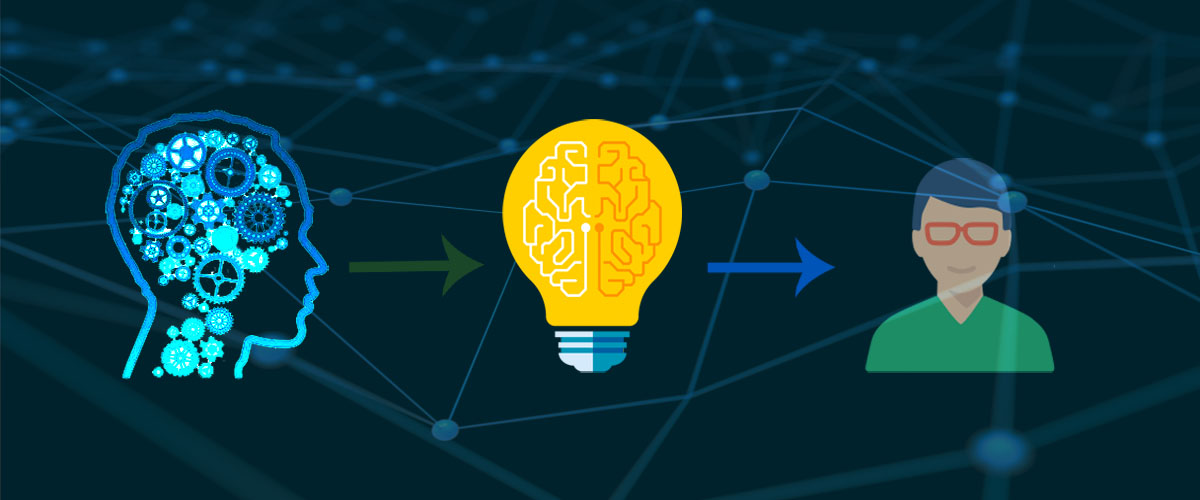In the era of the data-driven world – where everything is calculated and decides based on numbers, figures, and facts – it is not possible for humans to understand and interpret it entirely. This has resulted in the incoming of Machine Learning to study the advanced analytics models. Industrial robots, artificial intelligence, and machine learning are evolving at a steady pace and people are scared for their jobs. This raises the question of utmost importance, will robots acquire the human jobs rendering them obsolete or a symbiotic association between robots and humans is possible?
Speed, Quality & Cost
The advent of advanced robotics and enhanced AI has improved the speed, quality, and cost of available goods and services while becoming an essential part of many businesses. This has resulted in many businesses operating with fewer workers. They have been designed to learn more human cognitive functions and with an ability to perform with more human-like tendencies. Automation has reduced the number of workers, along with the cost, required to produce per unit of good or service – which increases the demand.
For example; the adoption of an assembly line by Henry Ford reduced car costs and prices, in turn increasing the demand for them and for the workers building them. It is expected that increasing productivity and decreasing prices will increase workers’ real wages.
Not Beneficial For All
Automation will not leave everyone with benefit and some workers displaced, and others (technicians or engineers) will derive more benefit out of it. Automation will increase a range of newer tasks, which cannot be performed by the machines. Some experts warn of staggering unemployment, while others suggest that it will create newer job categories for displaced workers. It is expected that in certain areas machines will substitute humans, wherein others they will complement each other. There are also people from the expert panel stating that automation will have no effect on human employment and they will work in a harmonious relationship in the future.
Usability Of Machine Learning
Many factories and warehouses are now using robots that are relatively mobile, versatile and more affordable than their previous generations. Baxter, a robot designed in the USA, can handle various tasks like packaging and loading – and costs around $25,000. Not only manual works but white-collar jobs are expected to be at risk from automation too. Quill, designed by Narrative Science, is able to crunch data and generate reports in a highly streamlined way. IBM’s Watson computer is challenging medical experts with its ability to sift through symptoms, medical histories, and the latest research to deliver diagnoses and suggest potential treatments. However, it is still time for computers to enhance their diagnostic abilities and empathy – so, for now, they are working in harmony by helping the doctors make a faster diagnosis.
Humans Can Be More Creative
Optimists are in favor of automation, as they believe it will free up humans from the mundane tasks to spend more time towards creative and thoughtful activities. The touch of personal interaction; like critical financial advice, empathy to patients, personalized expertise, etc. will never go out of human hands to automated machines. Any repetitive procedure is more likely to be automated, while anything that requires a high analytical level and better articulation will remain with us. It is believed that humans will have to up their ante of skills to outlive their jobs by leveraging the technology in their favor.
Intelligent Technologies
There is potential for intelligent technologies to augment and enhance our jobs rather than replace them. For example; Bank tellers have reduced their time-spend on cash responsibilities and are now utilizing the same to provide relationship-based services to bank customers. We need to invest our time and money in gaining skills that can not only secure our jobs but also compete against the robots.
We humans will need to provide a range of options proving our utility to future-proof our jobs. We will have to step up and add more strategic skills to hyper-specialize in our fields to get above the machines and work in a more symbiotic environment. Businesses will have to get out of their comfort zones to create a perfect human-machine partnership for their longevity and better productivity. For more detail about emergency technology and outsource Java development


